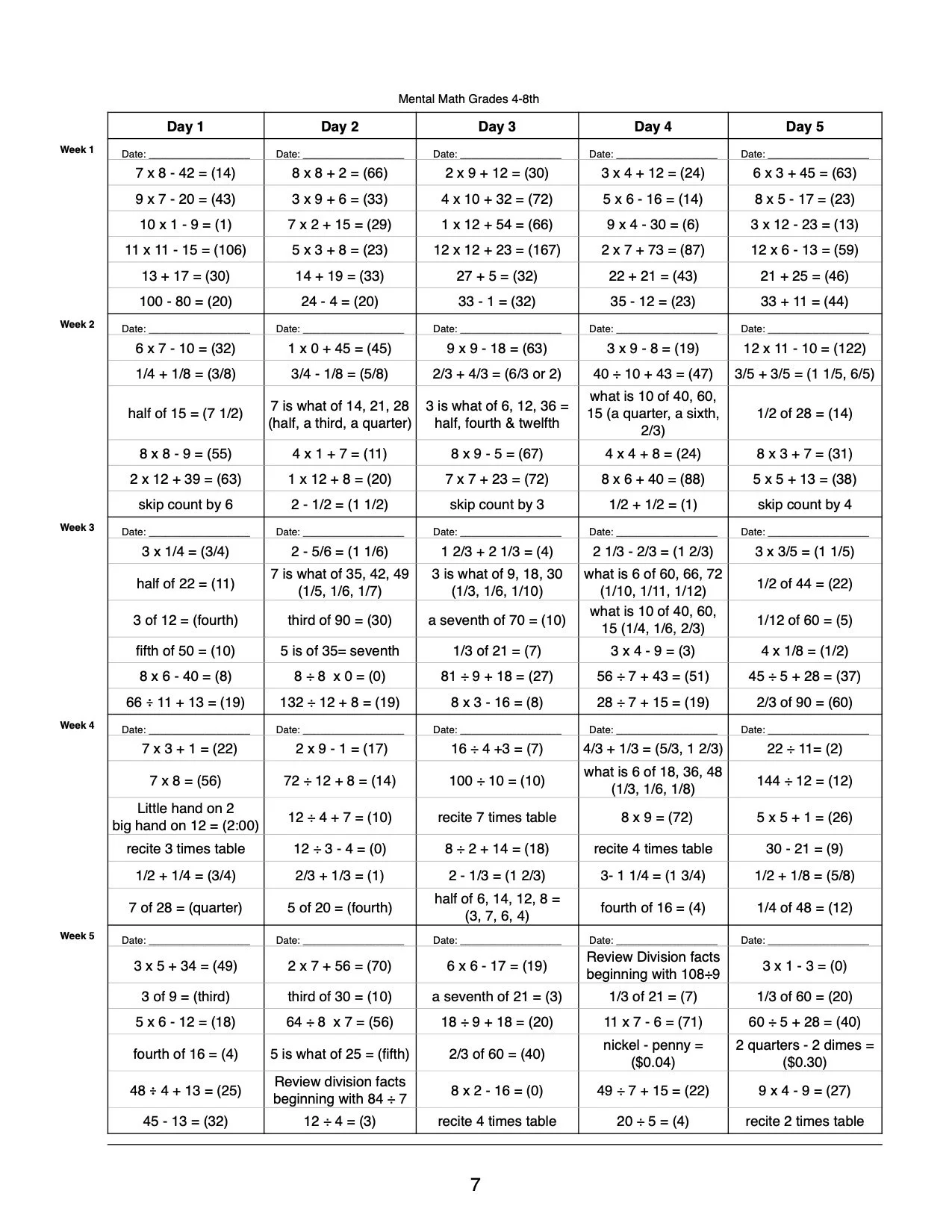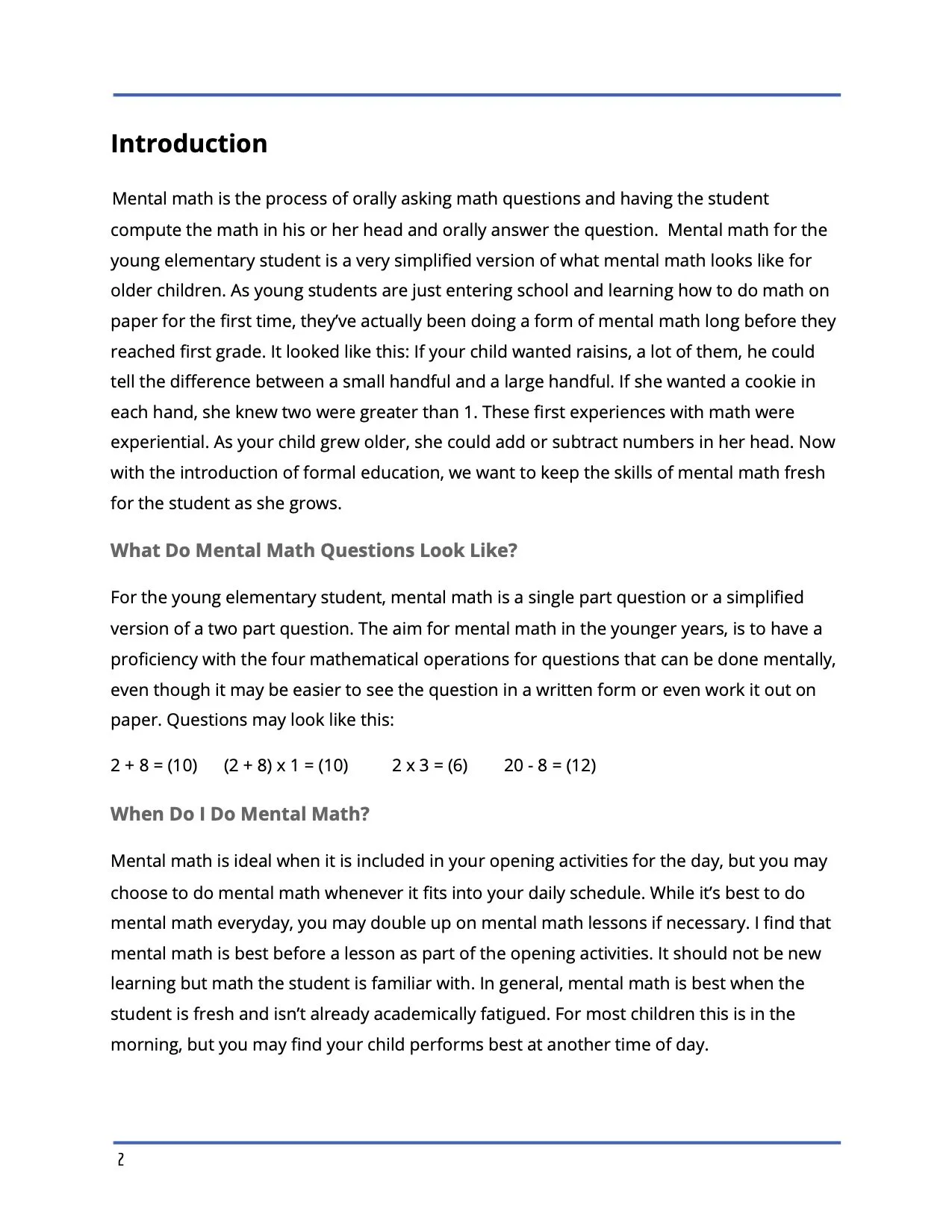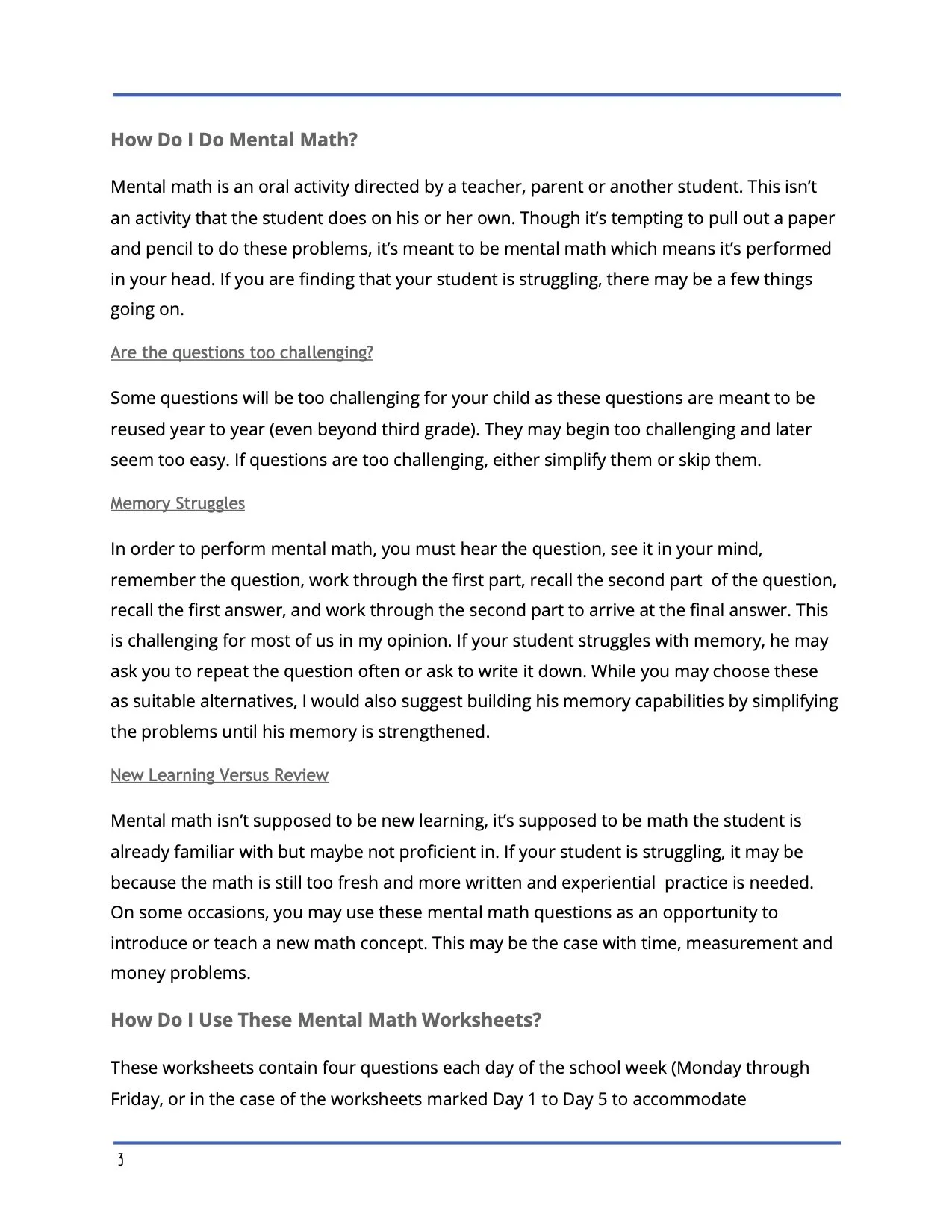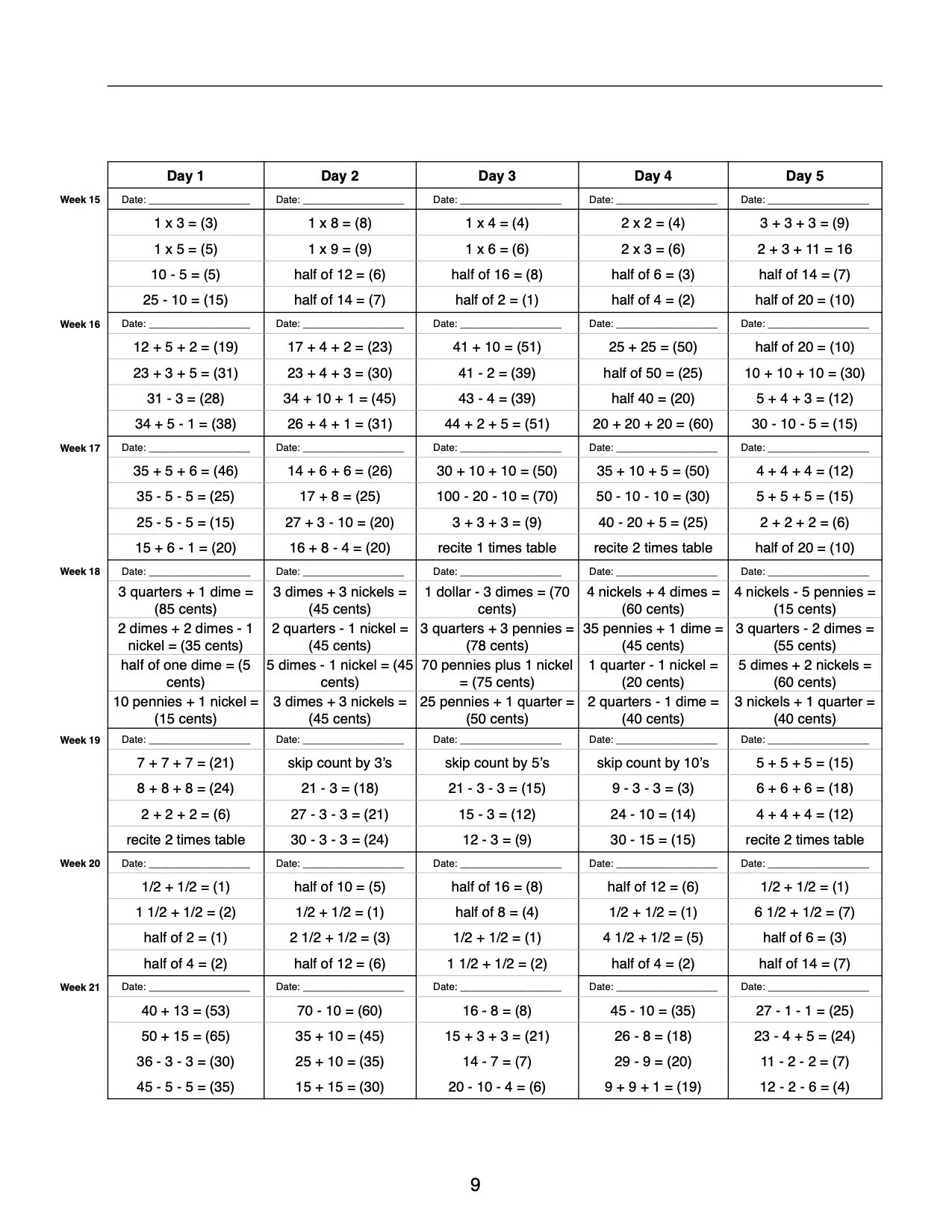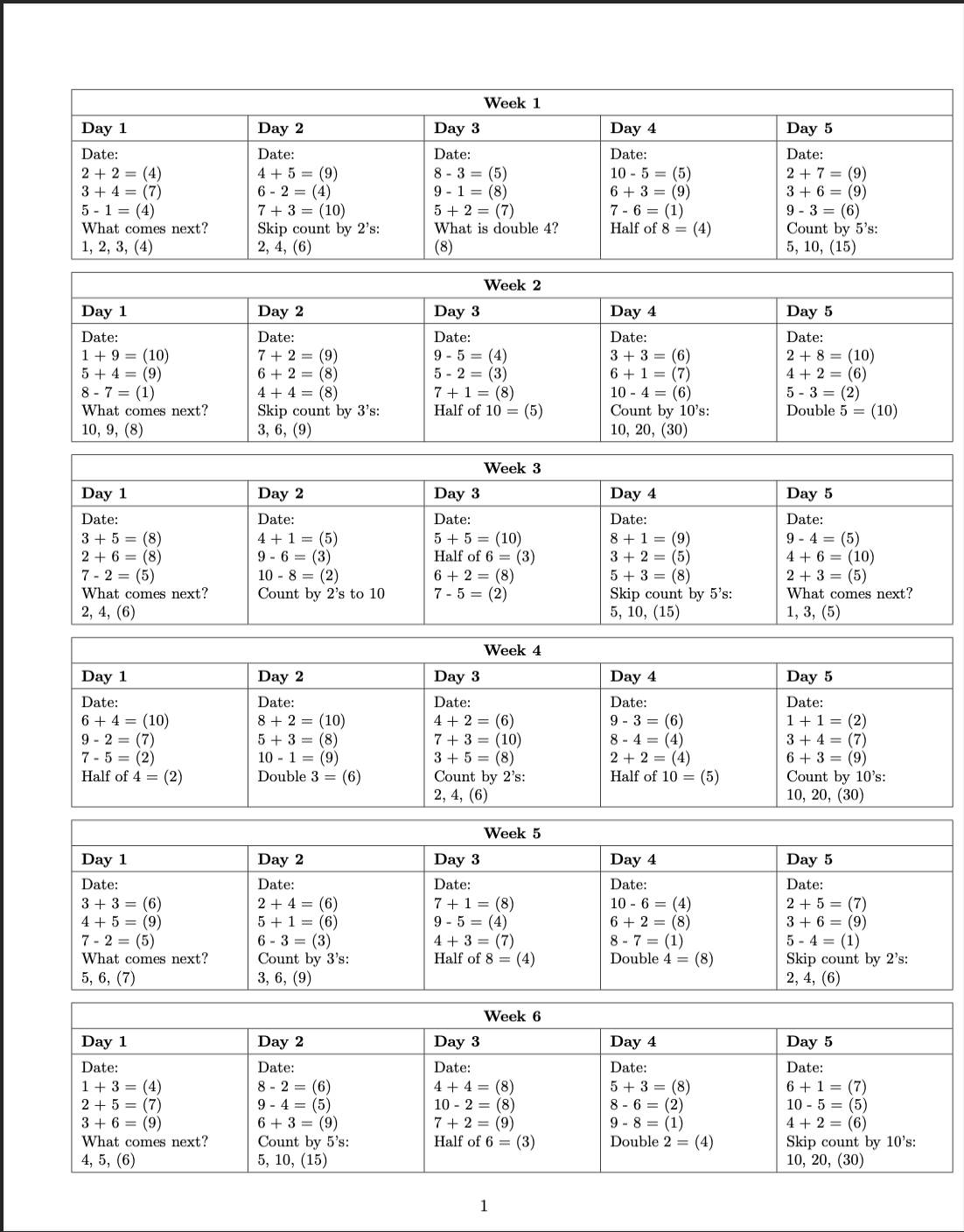Mental math the Waldorf inspired way (and with my own additions), involves two part questions (more so as the children grow, less so when they are first starting out), in which two different math operations are completed in one problem. One other significant difference you'll find with mental math the Waldorf way is that sometimes the answer is offered and the solutions are discovered. It looks something like this: "What makes 12?" You ask a student. "3 x 4," a student offers. "4 x 3," another student says. "6 x 2" another chimes in. "24 divided by 2," yet another student says. You can quickly see how many answers there can be. While not many questions are posed this way, they are scattered throughout the worksheets.
This math curriculum is designed to support your existing math curriculum not to replace it. I usually use mental math are part of our opening activities.
[video width="3840" height="2160" mp4="https://www.pepperandpine.com/wp-content/uploads/2020/08/Mental-Math-grade-4-8.mp4"][/video]
Mental Math are math questions that can be worked out in one's head. Often, they are two part questions which involve a multiplication or division question first, followed by an addition or subtraction question next. When you add in fractions, decimals and percents, you can easily see how complex the questions can become.
One thing about math is that it is exact. 12 x 4 = 48. Always. It isn't maybe 47 or sometimes 49, it's simply 48. That's one thing I love about math. There's one right answer. Or is there? What you ever tried math the Waldorf way? Instead of asking what is 3 x 4? You can ask what makes 12? When you ask the second question, you can have an infinite number of answers! Each answer is exact and right, but now instead of just having one right answer, you have several right answers.
I recognize that the mental math sheets may be too basic or too advanced for your child. Here are some tips on how to use it:
Too basic: That's okay, it's still working and gives your student some small wins.
Too advanced: Skip it! Don't worry if your child doesn't know this math, or doesn't know how to do multiple operations. Simplify the questions or skip them.
We haven't learned this yet: Take the opportunity to teach the math in a basic way, but minimally. We don't want to derail your goals. Or skip those problems.
Just right, but not enough: Double up on daily mental math. You can reuse these sheets year after year! While grades 1-3 have a total of 72 weeks worth of math, each day only has four questions.
When my children were young (1-3 grade), I only did 2-4 questions a day.
When my children were 5-8th grade, they were doing 6-10 questions a day.
Check out the full length Mental Math Video for a complete look at this curriculum.




